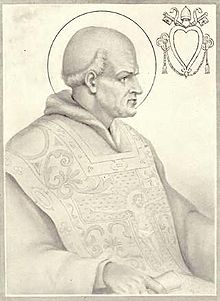523
This article needs additional citations for verification. (April 2019) |
| Millennium: | 1st millennium |
|---|---|
| Centuries: | |
| Decades: | |
| Years: |
| 523 by topic |
|---|
| Leaders |
| Categories |
| Gregorian calendar | 523 DXXIII |
| Ab urbe condita | 1276 |
| Assyrian calendar | 5273 |
| Balinese saka calendar | 444–445 |
| Bengali calendar | −70 |
| Berber calendar | 1473 |
| Buddhist calendar | 1067 |
| Burmese calendar | −115 |
| Byzantine calendar | 6031–6032 |
| Chinese calendar | 壬寅年 (Water Tiger) 3220 or 3013 — to — 癸卯年 (Water Rabbit) 3221 or 3014 |
| Coptic calendar | 239–240 |
| Discordian calendar | 1689 |
| Ethiopian calendar | 515–516 |
| Hebrew calendar | 4283–4284 |
| Hindu calendars | |
| - Vikram Samvat | 579–580 |
| - Shaka Samvat | 444–445 |
| - Kali Yuga | 3623–3624 |
| Holocene calendar | 10523 |
| Iranian calendar | 99 BP – 98 BP |
| Islamic calendar | 102 BH – 101 BH |
| Javanese calendar | 410–411 |
| Julian calendar | 523 DXXIII |
| Korean calendar | 2856 |
| Minguo calendar | 1389 before ROC 民前1389年 |
| Nanakshahi calendar | −945 |
| Seleucid era | 834/835 AG |
| Thai solar calendar | 1065–1066 |
| Tibetan calendar | 阳水虎年 (male Water-Tiger) 649 or 268 or −504 — to — 阴水兔年 (female Water-Rabbit) 650 or 269 or −503 |

Year 523 (DXXIII) was a common year starting on Sunday (link will display the full calendar) of the Julian calendar. At the time, it was known as the Year of the Consulship of Maximus without colleague (or, less frequently, year 1276 Ab urbe condita). The denomination 523 for this year has been used since the early medieval period, when the Anno Domini calendar era became the prevalent method in Europe for naming years.
Events[edit]
By place[edit]
Byzantine Empire[edit]
- Justinian, later Byzantine emperor, marries in Constantinople his mistress Theodora, who is by profession a courtesan (approximate date).
Europe[edit]
- King Chlothar I takes part in an expedition against Burgundy and captures the town of Autun. Now about 26, he makes plans to expand the territory he inherited from his late father, Clovis I.
- King Sigismund of Burgundy is defeated by the invading Franks under Chlodomer, Childebert I and Chlothar I. He is captured and taken as prisoner to Aurelianum (modern Orléans).
Africa[edit]
- Hilderic succeeds his uncle Thrasamund after a 27-year reign, and becomes king of the Vandals and Alans. He favours Catholicism and grants the inhabitants religious freedom.
- Leptis Magna (modern Libya) is sacked by Berber (Moor) raiders. Gelimer leads a successful expedition in North Africa.
Asia[edit]
- A revolt breaks out on the Six Frontier Towns, on the northern border of Northern Wei China ("Revolt of the Six Garrisons"). Tensions between the elite and the Tuoba-clan severely destabilise the state.
- The Songyue Pagoda is completed during the Northern Wei era; the circular-based tower is still 40 m (131 ft) in height.
- Seong becomes king of Baekje, one of the Three Kingdoms of Korea.[1]
By topic[edit]
Religion[edit]
- August 6 – Pope Hormisdas dies at Rome after a 9-year reign, in which he has been instrumental in ending the Acacian Schism. He is succeeded by John I as the 53rd pope.
Births[edit]
- Aurelianus, archbishop of Arles (d. 551)
Deaths[edit]
- August 6 – Pope Hormisdas (b. 450)
- Arethas, leader of the Christian community in Yemen
- Muryeong, king of Baekje (Three Kingdoms of Korea)[1]
- Philoxenus of Mabbug, Syrian theologian
- Thrasamund, king of the Vandals (b. 450)
References[edit]
- ^ a b "List of Rulers of Korea". www.metmuseum.org. Retrieved April 21, 2019.
